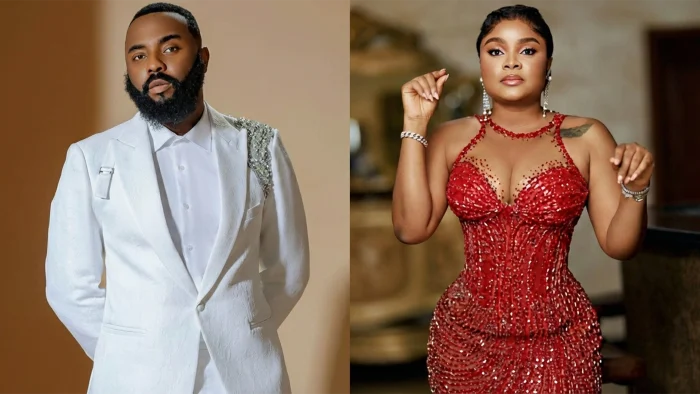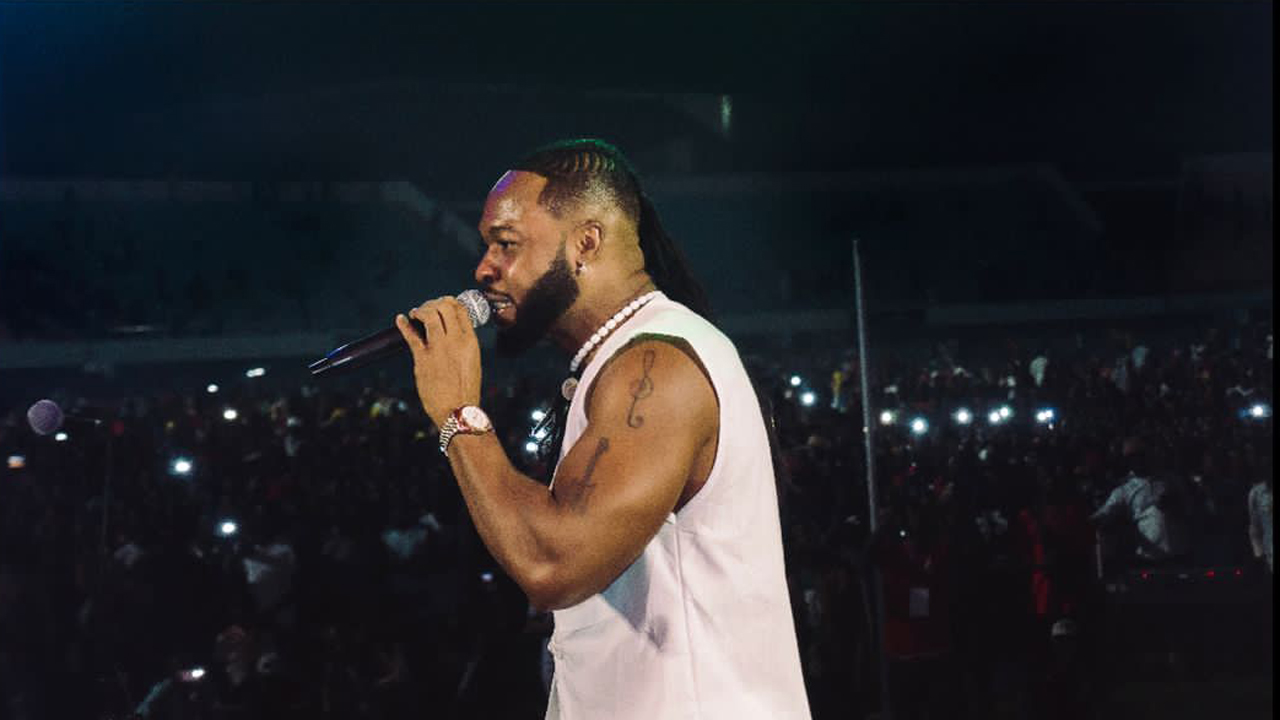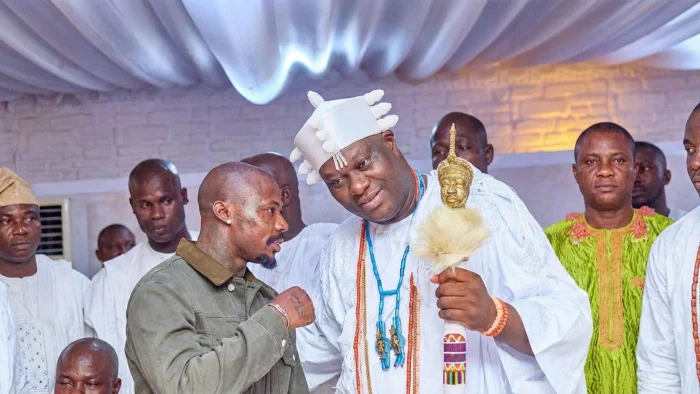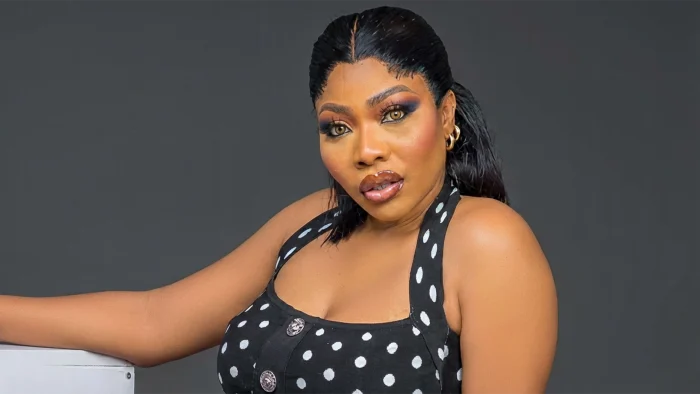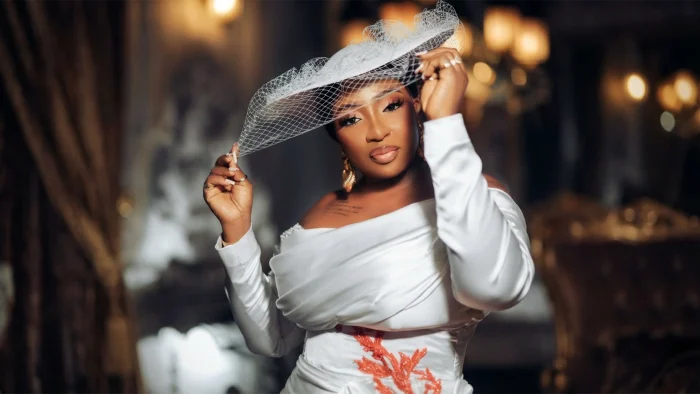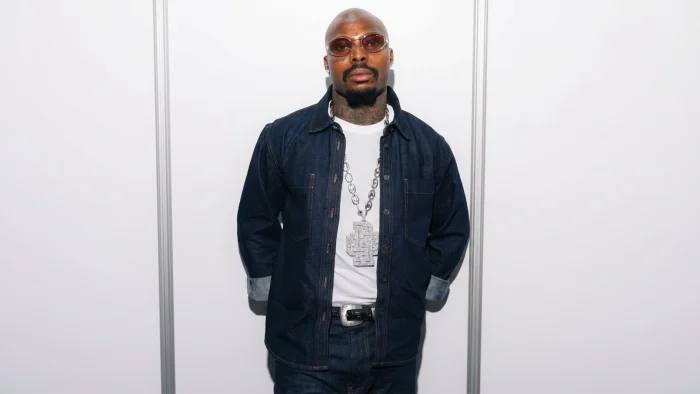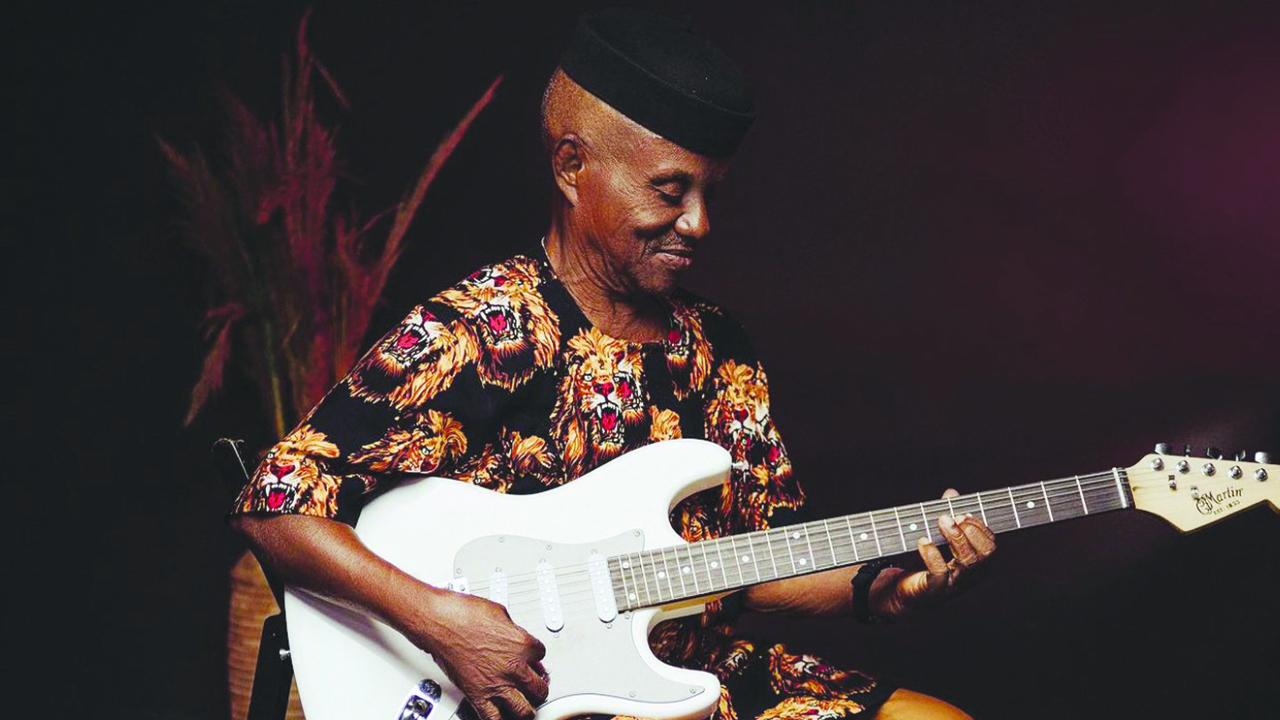
One would hardly spend time skimming through the annals of Nigerian music without encountering the highlife great, Kabaka and His Oriental Brothers. The staunch highlife maestro built a legacy with his brothers under the ‘Oriental Brothers’ moniker shortly after Nigeria’s civil war. Their music, packed with socio-political commentary and sung in Igbo, was a distinct blend of highlife music, incorporating elements of jazz, funk, reggae and rock into their music.
[ad]
While the original Oriental Brothers’ band would split during the ‘70s, with two of the Oriental brothers – Sir Warrior and Kabaka – forming their own bands, the band’s leader Dan Satch still stuck to the band, until their temporal reunions in 1987 and 1996.
Now, Kabaka, whose solo career has been snoozed from new releases for the last 17 years, is back with a vibrant album dubbed, Abialam. The 6-tracker record reignites the guitar mastery that Kabaka held over the Oriental Brothers, stretching his sonical wits well into his old age. The 77-year-old, who still plays at social functions in the South Eastern and Southern parts of the country, sits down with Guardian Music, to take a trip down memory lane, revisiting the ideas that created Abialam, as well as his current creative processes and hope for the future of highlife music.
So now that Kabaka is back again in the music industry, how does it feel for you?
Yes. You know the problem in the country. It has not been very easy for us to perform or get our musicians together to do something. So yes, I like coming back because I have been an old artist. A legend who gave many records to people, even from the time I started with Oriental Brothers. So, there are no two ways about it.
Why did you make this album and what does it mean?
Abialam means “I have still come back to what I have been doing before” so there are no two ways about it. I play my music as before and even bigger than what it was before.
So, from the album, which ones are your favourite songs?
I have so many tracks in the new one, and my brain is filled up with records. So, Abialam is a title which I used to show people that yes, I have come back again and started doing what I was doing before. So that is how it is.
How many years did it take to record the album?
It’s a project that we’ve been working on since 2015, and now we have the greatest opportunity, so we have to unleash it.
What are you coming to achieve with this project?
You know, anybody that knows oriental brothers and anybody that listens to oriental music knows how they do their songs. They have a unique sound. Anytime you hear that sound, you know that these are the oriental brothers. So, we came up with that same method and once you hear it, you will know that this is oriental brothers. There are no two ways about it.
Kabaka’s Highlife is very much refined in fusion. What were some of his influences at the time?
We played those songs from what we had been hearing and what had been happening. There were so many types of music, Ghanaian music and then Congolese music. Wherever I set up my composition, I know how I used to compile with other friends.
[ad]
Now, let’s go back to since your last album till now, what has Kabaka been up to apart from making music? What have you been doing, and how has life been for such a legend?
I think it took about 17 years to do this present album. And since that time, I have been doing music, because people know me very well. So, people still call me for shows- live performances, marriage ceremonies, burials, and so on.
Around where?
Here in Imo State, Port Harcourt, Enugu, in the North, Lagos, and anywhere.
Do they listen to highlife music in the north?
Yeah, they do. Most of the igbos that are there. Yeah, in places like Jos.
That’s interesting. When was the last time Kabaka traveled for a live performance?
I have performed in Rivers State this year. They love my music very well there.
How often does he rehearse? What’s his performance style?
It’s something that is now part of me. You know i go to shows with professionals, people I trained very well. Most times, they don’t rehearse. It’s something that they know. So, once that feeling is there, you would see that spirit of music and they will do what they know how to do.
A lot of highlife music from the 70s were recorded differently. How does Kabaka record his own?
Yeah. Like this present album that we just did, we did the recording with both analog and digital. Because if we do it only digital, if there are some mistakes that we need to correct, it will be very difficult, we can’t do that. But if we do it with analog and digital, if there is any mistake that you want to go back and correct, you will still go back there and correct it. So, this present one we did, analog and digital.
[ad]
Now, there are a few younger highlife musicians now like the Cavemen, Umu Obiligbo and a few others. So, what does Kabaka think about their music?
Kabaka’s Son: Yeah. In terms of listening to music, let’s say I am the one doing all that for him. Most times, he listens to still way back songs but not the present ones. I am the one who listens to any kind of music, and anytime we want to do something, I will come up with saying let’s do it like this, let’s do it like that. And I will tell him, let’s do this thing like this, it will work.
That’s interesting. Have you tried before playing him any music from some of these younger guys?
Yeah. I think there was a day we were going to Owerri with my car so I played the Cavemen and I told him that look, this is the new generation highlife now..
Did he like it from his reaction?
He did, but I can’t really tell. He did like the sounds.
So, how much ownership does Kabaka enjoy from his, over a dozen albums that he has to his records?
Presently, I will tell you he is not getting any returns on the old songs for now because most of them were all pirated. Because when his old label left Nigeria, I think they didn’t hand him over the copyrights. I don’t know how they got the copyrights then. Several other people came and pirated the songs. Some uploaded them on YouTube and other digital platforms. So, that’s what we are fighting for now to see if we can reclaim them.
So, for this current record now, I hope it’s his ownership as well?
Yeah. This one is safe.
Is Kabaka still making more music? Like does he wake up every week and make music?
Yeah, he does.
[ad]
What is his favorite part of the creative process?
Yeah, he writes but mostly he has that relationship with his guitar. Any song that he wants to come up with, he will first of all pattern it with his guitar. Come up with a rhythm, lead line, and like that.
Why is the guitar his favorite instrument?
Kabaka: Yes, because I learnt so much. When I was in elementary school, I played the trumpet. I was playing in the school band. I learned how to play the trumpet. Then the idea is for me to take up the guitar or any other type of instrument I may be involved in.
Okay. Do you still play the trumpet?
I cannot play it now because my power cannot get up to that extent now.
Okay. So, is the guitar your most convenient instrument?
It is my favorite as of now.
Who are some of Kabaka’s favourite highlife musicians?
I listen to many types of music in this country. You know, during the time Oliver de Coque was alive and playing. We listen to Osadebe and Ikengas.
What is his vision for the music as of now?
Yes, I have plans that I will be playing this music and all my old records will be coming out in my name and people will be listening to it and it will be more reckoned with other people who haven’t heard it yet.
[ad]


